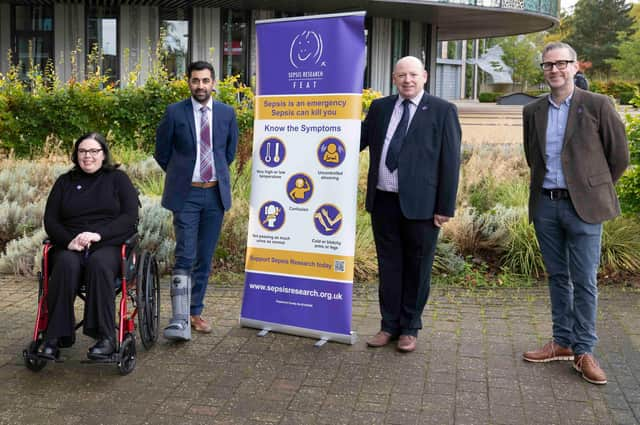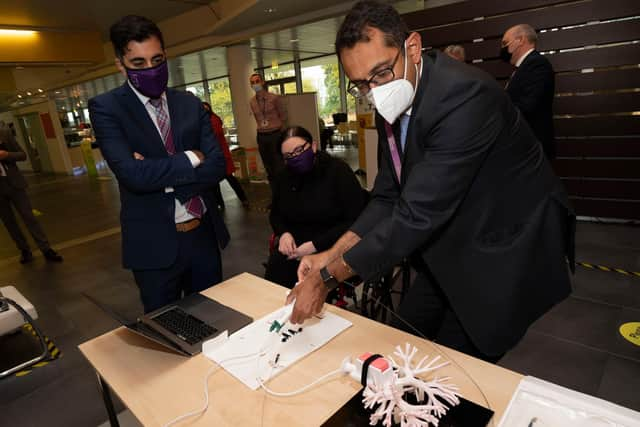Health Secretary visits the Midlothian home of pioneering sepsis research study


The pioneering GenOMICC study, led by Professor Kenneth Baillie, researches how genes can influence the body’s response to conditions such as sepsis.
Mr Yousaf met with representatives from Sepsis Research FEAT and researchers from the GenOMICC study.
Advertisement
Hide AdAdvertisement
Hide AdHe said: “It has been a privilege to see the remarkable work being done at the University of Edinburgh’s Roslin Institute through the GenOMICC study.


“Patient safety remains key to delivering safe and effective care to all patients every time they access healthcare services and the Scottish Government’s Scottish Patient Safety Programme continues to make progress in its action on sepsis.
"Focusing on early identification is critical and treatment within one hour of recognition has led to mortality rates among those identified at this stage falling by 21 per cent since 2012.
“The facilities and dedication of the team at the Roslin Institute demonstrates our continued efforts to deliver safe and reliable healthcare.
Advertisement
Hide AdAdvertisement
Hide Ad"Sepsis Research FEAT play a crucial role in funding this essential research and an incredible job in alerting more people to the symptoms and dangers of the disease.”
Colin Graham, chief operating officer at Sepsis Research FEAT, said: “It was a pleasure to meet with the Health Secretary and the GenOMICC study’s exceptional team of researchers at the Roslin Institute.
"This world-leading study is seeking to discover specific genes that influence how vulnerable we are to sepsis and other illnesses. If scientists can find patterns in our DNA, then this will help us understand what causes someone to become seriously ill or die from sepsis, leading to improved treatments and more lives being saved.
“Sepsis is a devastating condition that can kill a previously healthy adult in hours.
Advertisement
Hide AdAdvertisement
Hide Ad"Even those who survive sepsis are often left with long term physical or psychological effects. We are very grateful to Mr Yousaf for meeting with us today to find out more about the GenOMICC study and the importance of research into sepsis.”
Sepsis Research FEAT is the only UK charity fundraising to support sepsis research, while also working to raise awareness of this life-threatening condition. The charity has supported the GenOMICC study since 2018 and recently pledged a further £90,000 funding for the next two years, taking the charity’s total investment to £210,000.
Over 4,000 people die from sepsis every year in Scotland. Sepsis occurs when the body’s response to an infection spirals rapidly out of control, injuring its own tissues and organs which can result in multiple organ failure and death. The biological processes that cause the condition are not understood and that is why more research is needed.